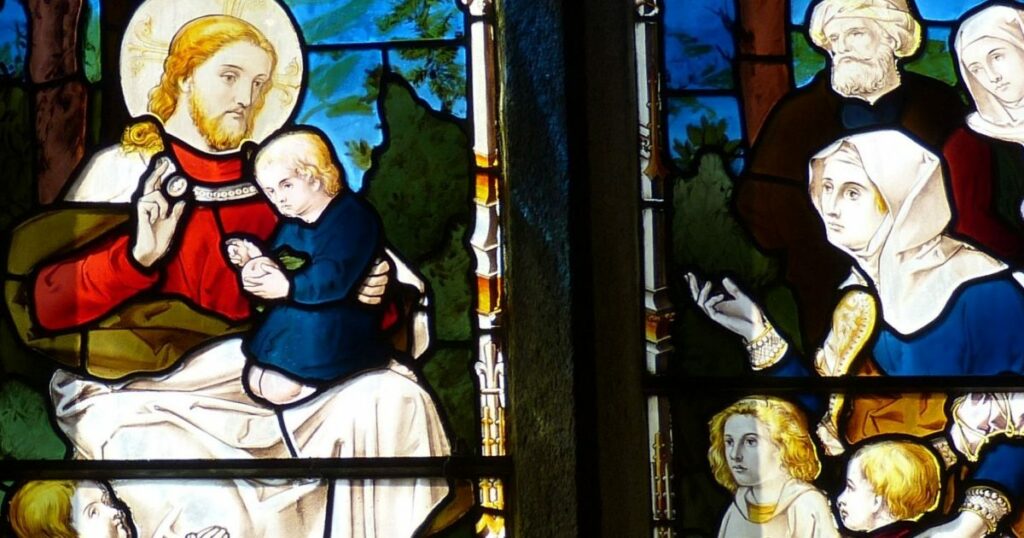On my bookshelf is a picture book from 1980 that tells children how babies come into being. The text says, “Since a family is happier with children, your mother and father wanted a baby. They wanted you … to love and to care for.” Thirty years ago, it was normal to assume that getting married and having children made life better.
In 1980, 33% of women had four or more children. Childlessness was rare, and the childfree movement unheard of. Now, approximately one third of millennial and Gen Z adults say they neither have nor want children. Roughly a quarter of respondents in one survey said that having children is irresponsible because of climate change. Others are unwilling to change their lifestyle or make so immense a commitment. Sterilization rates among young, childless women were already on the rise before the Dobbs ruling, and they have increased dramatically since then.
It is fair to say that many Americans are afraid of having kids and building families. Furthermore, these childless young people are right about one thing: Family life in modern America is hard.
This summer, the surgeon general issued an advisory on the mental health of American parents. According to this report, “41% of parents say that most days they are so stressed they cannot function and 48% say that most days their stress is completely overwhelming.” Apparently, rather than making families happier, having a baby may, as one headline put it, “be hazardous to your health.” The document calls for governmental involvement to ease the burden on American families.
The thing is, this problem is not one the government can fix. The current secular model of family is fundamentally broken, and no amount of free childcare will change that. At its core, this broken model is built on the belief that human beings must construct our own identities apart from anyone else. We must be free to define ourselves and pursue our dreams. Because commitment to other people limits our freedom to self-define and pursue happiness, we must be free to discard other people at will. That is why no-fault divorce, abortion, cutting annoying relatives out of our lives, dropping friends when their problems become overwhelming, and changing churches or denominations on a whim are all essential components of our world’s model.
Sometimes this model leads to open separation. America has the highest rate of single-parent families in the world by a massive margin. Often, however, the estrangement is beneath the surface. Spouses compete over the division of resources and housework. Parents are pressured to build personal identities by forging impressive careers, no matter how difficult it becomes to also meet the needs of other family members. Children are over-scheduled and smothered with possessions in order to build their identities.
Resentment is inevitable, because people who think it is the job of spouse, child or friend to give them fulfillment will find that other human beings cannot make them happy. Resentment is a recipe for loneliness. We should not be surprised that the surgeon general has also issued a recent advisory on the “devastating impact of the epidemic of loneliness and isolation in the United States.”
How, then, can we help a country filled with exhausted, stressed, lonely people, many of whom are so confused by the world’s recipe for a good life that they eschew the fundamental human desire to marry and have babies? They are missing out. Isolation is not part of God’s model for the human race. Psalm 68:6 tells us, “God sets the lonely in families” (NIV), and living together in loving self-sacrifice is a wonderful gift that we should want our neighbors to have.
First, however, we must recognize that none of us can save the world by getting married and having babies. Nor should we react to the world’s attack on families by making the family an idol or a way to prove our own virtue. Furthermore, not all Christians are called to the vocations of spouse and parent.
The only full and ultimate solution for our neighbors’ suffering is Jesus.
Yet families are part of God’s model for life on earth, and Christian families have an opportunity to confess our faith in Jesus by living out our vocations.
Three ways family life is a witness to our neighbors
The first way Christian families serve the world is through example. We can show our neighbors that the broken model is not the only way — stable, joyful, committed, functional family life is possible. Christians have always cared for the physical well-being of others. Just as we would give our neighbor food if he were hungry, we can show him how to live in a way that is more likely to lead to good mental and physical health.
The second way Christian families serve the world is by being available. The stability of healthy family life means that we are more likely to have the extra margin to help others. We can be the people who invite others into our homes for food and fellowship. We can bring soups and casseroles, give rides, hang out at the playground, and serve on committees. We — not the government — are the people who can step in to build relationships.
This second way is possible not only because a stable family is able to share the workload, but also because our philosophy of life liberates us from secular hangups. We can treat jobs and careers simply as a way to provide for our families. We do not fear that the work of running a home well will destroy our identity. We can embrace the need to learn the skills that make us better at housework, parenting and hospitality. We can serve others without exhausting ourselves in power struggles.
The third way Christian families serve the world is quieter and less visible. Christian family life is risky. It is dangerous to give ourselves fully to others, trusting them to love and care for us in return, rather than first guarding our own needs and identity. It is risky to make permanent commitments to fellow sinners. It is risky to give birth to children when doing so multiplies the chances that we will experience grief, fear, stress and suffering.
We could not do it if we did not trust someone outside ourselves. Our crazy, dangerous lifestyle is a witness that God is great and good. It is He who protects us from ourselves, our families and the world. It is He who forgives our sins and helps us forgive each other. It is He who works through us and all our flaws to build and care for the people around us. It is He who puts the lonely in families.
The surgeon general thinks that families need government. Actually, all of society needs families. Christian family life is a confession of faith, and it is a confession our neighbors need to hear and see. May God bless this good work.






This is good.
Excellent article !